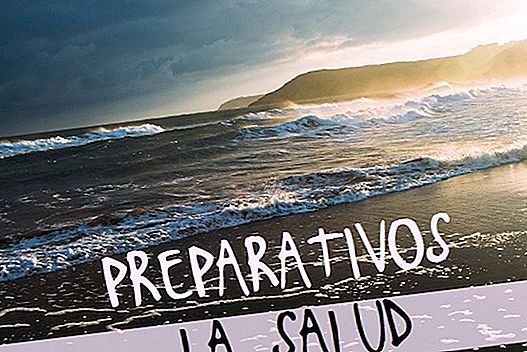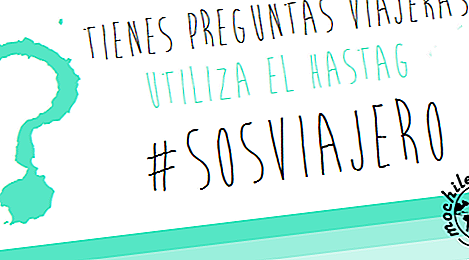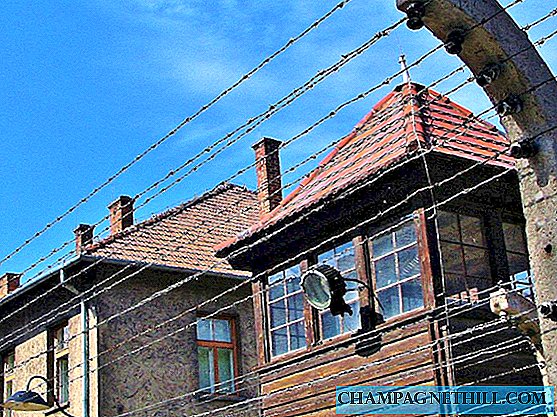
In the first place, it is essential not to put on the bandage before getting hurt, nor to have a negative and hypochondriacal attitude of the series:
“you-will-see-after-eating-so-much-rice-with-chicken-the-wheel-of-the-motorcycle-will-explode-I-will-fall-I-will-injure-and-it-will-bite me 1- rare-species-of-unknown-mosquito-and-1-evil-snake-will-bite-me-in-the-arm-well-because-the-other-is-plaster-due-to-that-I've-done- fallen-from-the-berth-of-that-ugly-hostel-where-I drank-polluted-water-and-now-I also have cholera ... Joer-no-me-was-left-over-typhoid-fever?”
But we must bear in mind that prevention is better than cure and being informed can avoid unnecessary scares. In this article we will tell you the vaccines needed to travel through Southeast Asia and everything related to the health to prepare a great trip.
Before going on a trip and especially if you plan to be away from home for some time, it is essential to get good travel insurance. In this article we show what are the points to consider when choosing the one that best suits our requirements.
Which are the Vaccines needed for a trip to Southeast Asia? For health advice, administration of vaccines, obtaining prophylaxis for malaria, etc., the best thing is Go to the nearest International Vaccination Center, where they can inform you personally of each vaccine and adapt it to your trip.
Considering that there are vaccines that need more doses at different time intervals and that most of them are not effective until two weeks after, at the very least, of their administration, It is important to make an appointment about 2 months before the start date of the trip.
Currently only the vaccine of the yellow fever It is mandatory, but only for certain areas of Africa and South America ... so we didn't need it! Well ... one less syringe!
These were the vaccines that we got into the body a couple of years ago for our 9-month trip through Asia, and since they are a few, we already had the body immunized for a long time, so the rest of the time we have gone retail time we have not put any:
- HEPATITIS A + B (3 repetitions, the second to the second month, and the third after 6 months)
- TYPHOID FEVER (one dose)
- TETANE AND DIFTERIA (one dose)
- RABIA (3 doses)
- POLYOMYELITIS (one dose)
The only one that would have left us calmer to put on and that could not be since in Barcelona it turned out not to have and that there was no time to wait, it was that of the JAPANESE ENCEPHALITIS ... it does not happen na, it does not happen na ...
For the previous trip we went to the international vaccination center of C / Bergara 12 of Barcelona (tel. 935209663)… the attention was good and the best advice they have given us is without a doubt basic and wise: make common sense. Previously it was the only one in Barcelona, but this has already changed (cuts and more cuts) so you'll have to pay by appointment, or by vaccination.
For more information about vaccines (which are, dose, prevention, symptoms ...) you can visit this website where it is exemplarily explained.
For short trips we are not too much in favor of vaccines, although this depends on each one. But if we advise you to read these articles of the Ministry of Health of Spain carefully before the trip:
For more information and recommendations, the Ministry of Health has a form where you can put all the data of your trip and generates recommendations, both for vaccines and for possible emerging diseases in the destination, etc.
♣ And what about the mosquitoes?
How will you know for Malaria or Dengue there is no vaccine… but if there is prevention and treatment: in the case of malaria it would be the MALARONE. Is it advisable to take? Well only in extreme cases:
- For long trips: it would be unthinkable to take Malarone as a prevention every time we are in a risk zone, so it is best to be careful, try to avoid bites and start treatment as soon as a high fever with headache, muscle aches, joints, chills and fatigue appears . Although the most important thing is to seek medical assistance to find out if malaria has actually contracted. In this case, 4 tablets will have to be taken three consecutive days.
- For short trips: Depending on the area where you travel it is advisable to start the treatment or not. Talk to the doctor at the international center or the family doctor and make the decision.
Although without doubt the best possible medicine is the avoid mosquito bites as much as possible. It is best to bring a good repellent such as Goibi, order mosquito nets in the accommodation, wear appropriate clothing and avoid the most intense moments of mosquitoes (at sunset and sunrise).
If, on the way back, you doubt having contracted any disease, it is best to go to the doctor and ask for an analysis.
Whether it is for a long trip of several months, or if it is for a shorter one, it is advisable to put together a small first-aid kit with everything you need in case we are not at all well, have a mishap or need to throw medications ... For the preparation of one of our trips through Asia this was our list of medications, which we updated with respect to the previous one (the crossed out drugs are the ones we no longer take ... if we were a pharmacy before!):
Analgesics and anti inflammatory: to relieve pain and fever
- 600gr granulated SPIDIFEN, for pain, 1 every 8 hours
- IBUPROFEN, similar, 1 every 8 hours
- APOTEX-PARACETAMOL, for fever, 1 every 8 hours
- VOLTAREN, for muscle aches, apply 4 times a day in the painful area
- YURELAX, for back and back pain, 1 or 2 every 24 hours -
Antibiotics: indicated in cases of infection by bacteria
- AMOXICILIN AND CYPRROFLOXACINE, antibiotic for infections caused by bacteria, 1 every 8 hours for 1 week. Eye, if you do not know how to differentiate between a bacterial, viral or fungal infection consult a doctor before starting an antibiotic treatment because if it will not be useless and harmful to your health since the antibiotic is loaded part of the own microbiota that will certainly be very useful in these trips to places so different from those we are used to (Thanks ElenaML!)
Antihistamines: for possible allergic reactions
- EBASTINA, for allergy 1 every 24 hours
Several and possible:
- OMEPRAZOL, stomach protector. 1 in the morning
- FORTASEC, anti diarrheal, 2 initial capsules and 1 each deposition, up to 8 a day
- BIODRAMINE, dizziness prevention, one pill one hour before the trip
- DIAZEPAN 5mg, muscle relaxant, calm anxiety and agitation 1 every 24h
- PRIMPERAN 10mg, for cases of nausea and vomiting, 1 every 8 hours
- NORFLUOXACINO, for urine infections, 2 pills every 24 hours
- MALARONE, 6 boxes of 12 pills (Malaria or Malaria treatment)
- GOIBI, mosquito repellent
- GOIPIC, to relieve itchy bites
- BETADINE in wound cream
- DISINFECTING LIQUID
- GASAS AND SALES
- STICKING PLASTER
- Anklet
- TWEEZERS
- TIRITAS
- DIGITAL THERMOMETER
- EARPLUGS
We know from experience that in the end less than half of those we are going to be used, so there are many who have thought that they are not very necessary and appear crossed out. Besides that in almost any place there are pharmacies!












